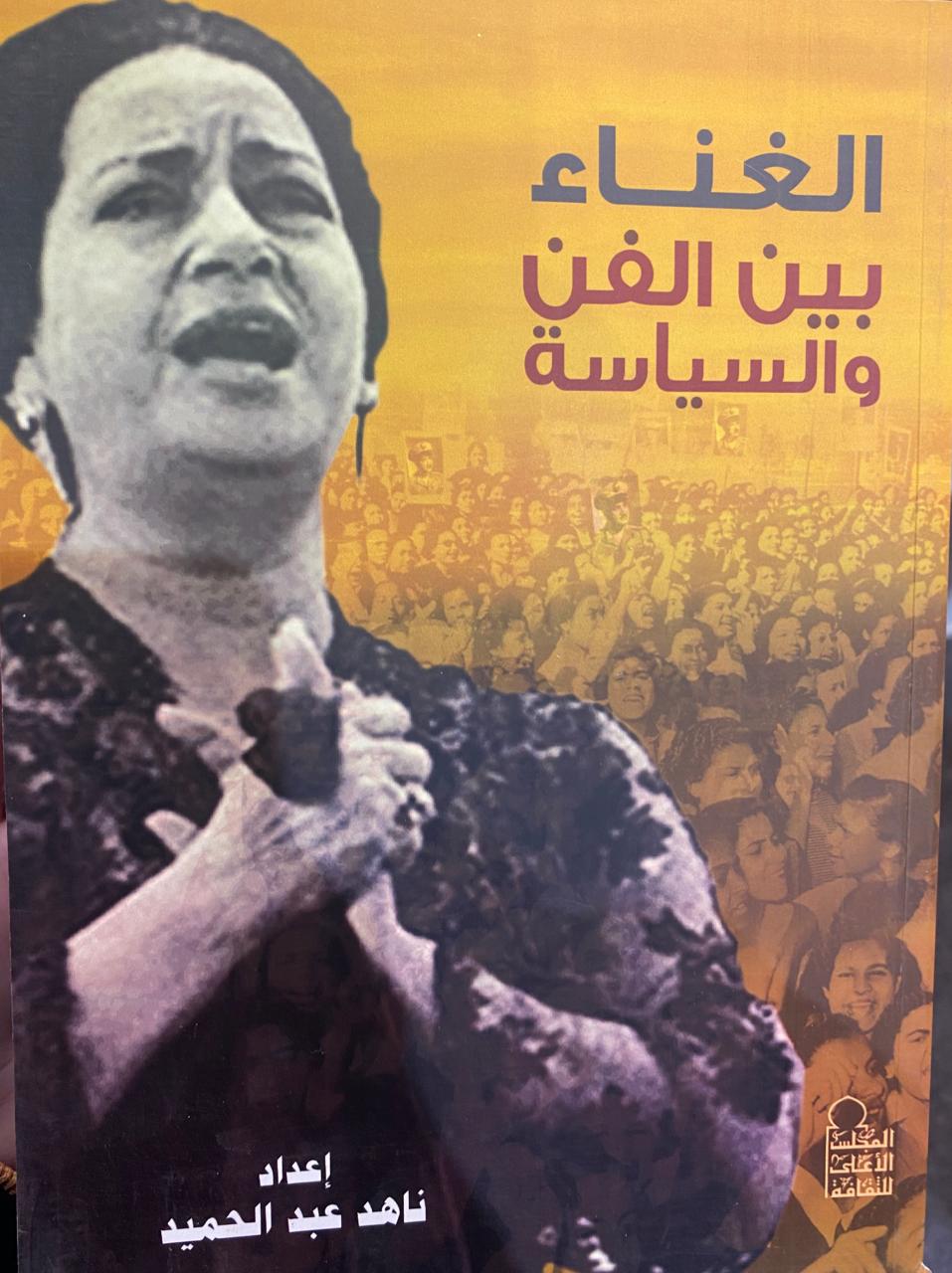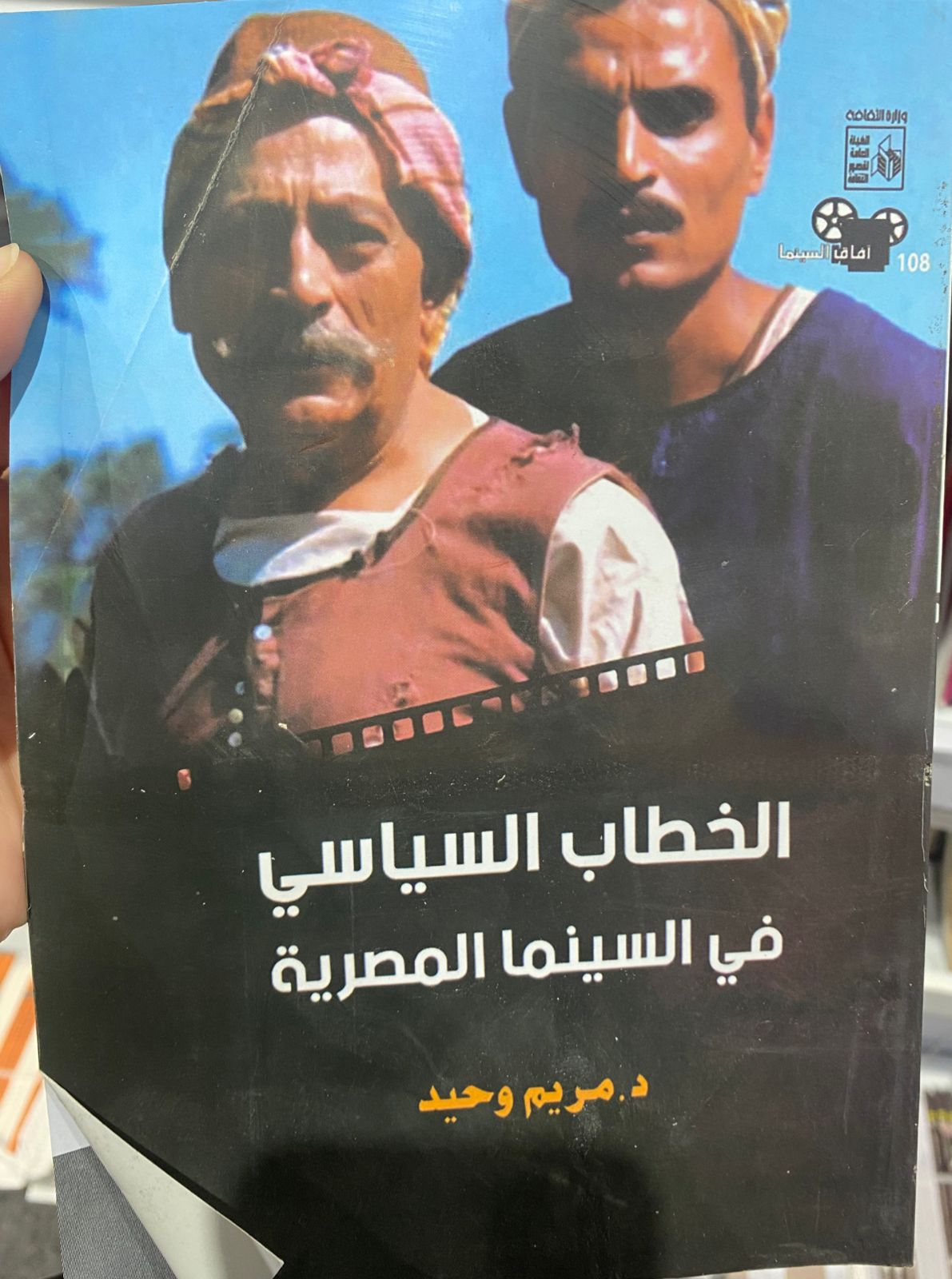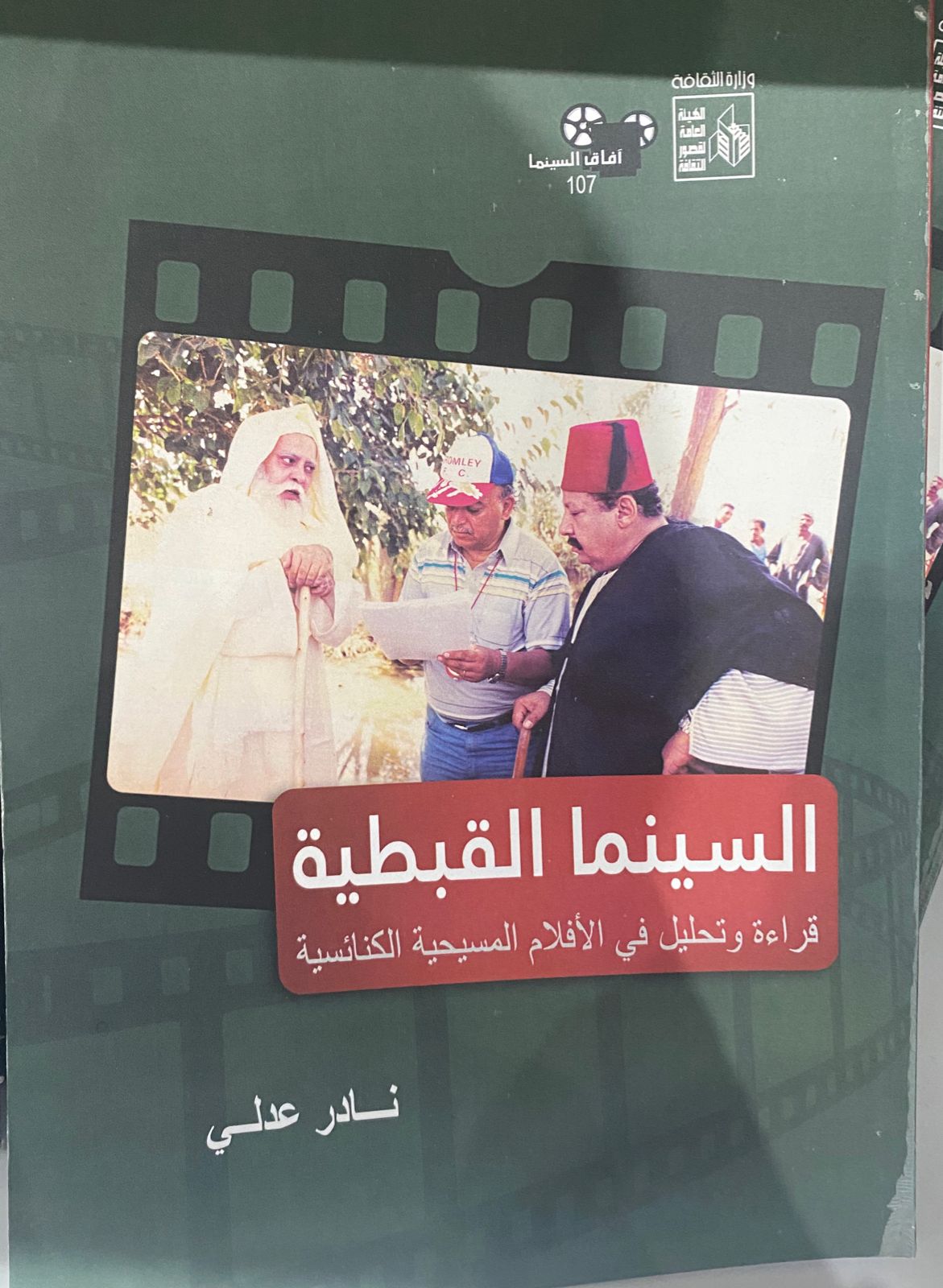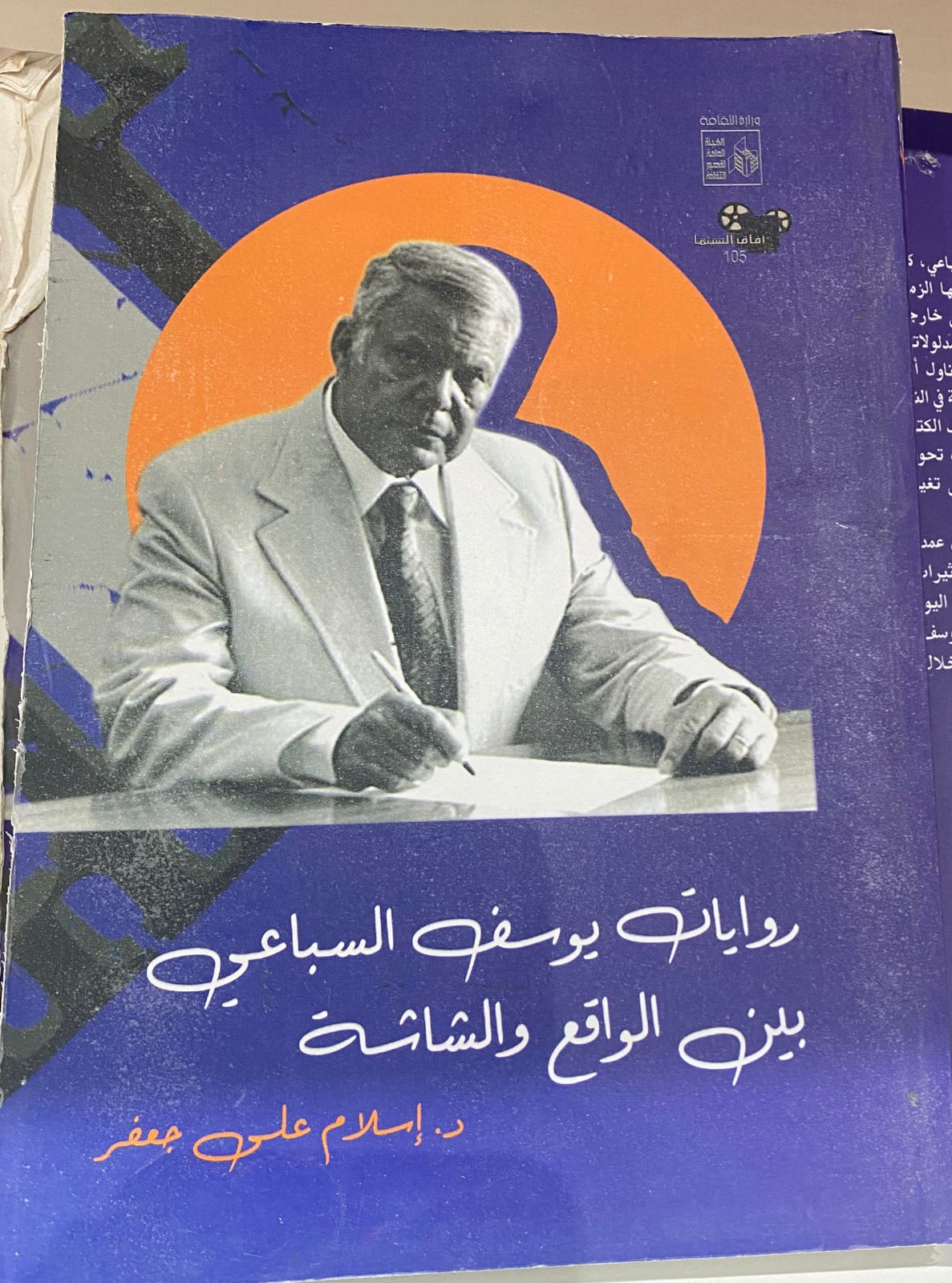The 55th edition of Cairo International Book Fair houses a large number of books that tackle multiple artistic fields whether cinema, drama, music, and its close connection to Egyptian society.
These books shed the light on the significant role of art in the Egyptian political sector as well.
Among these books are: “El Gena’a Bayen El Fan W El Seyasa” (Singing between Art and Politics)by Nahed Abdelhamid which it’s front cover houses a photo of the legendary Umm Kulthum highlighting how she significantly contributed in the political life with her unique voice.
Another book is “Al Khetab El Seyasy Fe El Cinema El Masrya” (The Political Discourse In Egyptian Cinema) by Dr. Mariam Waheed.
“Al Khetab El Seyasy Fe El Cinema El Masrya” presents a political analysis of Egyptian cinema in order to reveal the underlying political messages that were presented in different films.
The book focuses as well on the issue of social justice in Egyptian cinema, by analyzing fourteen Egyptian films that were produced from 1961 to 1981.
Waheed explained throughout the book how to analyze films to reveal their direct and indirect political messages.
Acclaimed author Nader Adly’s “El Cinema El Kebtya” (Coptic Cinema) provides in depth look and detailed analysis
of Christian and church films.
“Rewayat Youssef El Sebaie Bayen El Wake’e W El Shasha” ( Youssef El Sebaie Novels between Cinema And reality)book by Islam Gaffar begins by presenting the history of the relationship between novels and cinema in Egypt and the mutual influence between them, and how cinema, in its beginnings, relied fundamentally on international novels and then moved to rely on Egyptian novels during the era of the prosperity of Egyptian cinema.
The book explains the details of the artistic adaptation process and the extent to which it was successful in the stages of Egyptian cinema development.
In his book Islam Gaffar presented a comprehensive comparison between the film and the novel from various aspects.
The book analyzed the world of the late veteran novelist Youssef El Sebaie whose novels stand at the same distance between his reality, his life and on-screen.
The book divides the world of El Sebaie into three sections that represent three stages in the history of Egypt: the stage before the 23rd of July Revolution, the stage after it, and the 1970s until the assassination of El Sebaie.




Comments
Leave a Comment